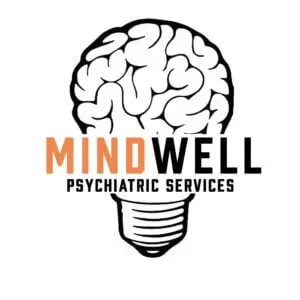If you’re thinking, “I need a psychiatrist,” it’s important to know that seeking help is a positive step. Mental health is crucial for overall well-being. In other words, finding the right support can make a big difference in your life. Many people struggle with issues like anxiety, depression, or stress. Realizing that “I need a psychiatrist” is a sign of self-awareness and strength.
At Mindwell Psychiatric Services, we understand the importance of finding the right psychiatrist. Above all, it’s about getting the help you need. Therefore, our goal is to guide you through the process. This article will help you understand when and why to seek psychiatric help. We want to make this journey easier for you. We’ll provide tips on choosing the right professional. Remember, taking this step shows courage and a commitment to your mental health.
Understanding the Role of a Psychiatrist
If you’re thinking, “I need a psychiatrist,” it’s important to know what they do. A psychiatrist is a doctor who helps people with their feelings and thoughts. They can help if you feel really sad, worried, or if things just don’t seem right in your mind. Psychiatrists treat various mental illnesses, including anxiety, depression, and bipolar disorders.
What Does a Psychiatrist Do?
Psychiatrists look at how your body and mind work together. They can give you medicine to help your brain feel better. They also talk to you about your feelings and help you find ways to feel happier. For instance, if you’re very worried or sad, a psychiatrist can help you understand why and what to do about it. They provide medication management to ensure you take the right medicine at the right time.
Why See a Psychiatrist?
You might wonder, “Why do I need a psychiatrist?” There are many good reasons. Psychiatrists know a lot about how the mind works. They can help with big problems like feeling very sad for a long time or having big mood swings. They know what to do when other things haven’t helped. So, seeing a psychiatrist can really help you feel better. They offer various forms of therapy, including online therapy, which can be convenient and accessible.
Types of Treatments Provided
Psychiatrists use different ways to help people. For instance, they might give you medicine to help your brain work better. Also, they can talk with you in special ways to help you feel better, like through talking therapy. In other words, they have many tools to help you feel your best. These tools are part of a broader health care approach, ensuring comprehensive support for your mental well-being.
When Do I Need a Psychiatrist in Las Vegas?
If you’re having trouble with your feelings for a long time, it might be time to see a psychiatrist in Las Vegas. If you’re feeling very sad, very worried, or your feelings are all over the place, a psychiatrist can help. Thinking “I need a psychiatrist” means you know you need help. And that’s a good thing! Addressing mental illness early, including conditions like bipolar disorders, can lead to better outcomes.
In conclusion, knowing what a psychiatrist does can help you decide if you need one. They can give you medicine, talk to you, and help you feel better. If you’re saying, “I need a psychiatrist,” don’t wait to get the help you need. Mindwell Psychiatric Services is here to support your mental health care needs, whether through in-person visits or online therapy options.
When to Seek Psychiatric Help
Sometimes, life can be tough, and we all feel down. But when those feelings don’t go away, you might think, “I need a psychiatrist.” It’s important to know when to seek help. Understanding the signs can guide you to get the support you need.
Signs You Might Need a Psychiatrist
You might wonder, “How do I know if I need a psychiatrist?” There are some clear signs to look out for. For instance, if you feel very sad or worried most of the time, it could be a sign. Also, if you have trouble sleeping, eating, or focusing, it might mean you need help. In other words, when everyday tasks become hard, it’s time to think, “I need a psychiatrist.”
- Persistent Sadness or Anxiety: Feeling sad or anxious now and then is normal. But if these feelings last for weeks or months, they could be a problem. That is to say, if you can’t shake off the sadness or worry, you might need a psychiatrist. In addition, persistent sadness can be a sign of deeper issues such as substance abuse and mental health disorders.
- Changes in Behavior or Mood: Big changes in how you act or feel can be another sign. For instance, if you suddenly lose interest in things you used to enjoy, it’s a red flag. Also, if you have big mood swings that you can’t control, it might mean you need help. Marriage and family therapy can also address these changes, especially if they affect your relationships.
- Difficulty in Daily Life: When mental health issues start to mess with your daily life, it’s time to seek help. For example, if you can’t concentrate at work or school, or if you avoid friends and family, think about getting help. Above all, your mental health is important.
- Thoughts of Self-Harm: If you ever think about hurting yourself, it’s crucial to get help immediately. This is a serious sign that you need a psychiatrist. Therefore, don’t wait to seek help if you have these thoughts. The Mental Health Services Administration offers resources to get immediate help.
In conclusion, knowing when to seek psychiatric help is key. If you find yourself saying, “I need a psychiatrist,” pay attention to these signs and reach out for help. Your mental health matters, and getting the right support can make all the difference.
Types of Psychiatric Treatments
If you think, “I need a psychiatrist,” it’s good to know the different ways they can help you. Psychiatrists have several methods to make you feel better and improve your mental health.
- Medication:One way psychiatrists help is by providing medication prescription and management. These medicines can help fix the chemicals in your brain. That is to say, they can make you feel less sad or worried. For example, some medicines help with depression anxiety. So, if you think, “I need a psychiatrist,” medicine might be part of how they help you. It’s important to discuss any concerns about the cost without insurance with your treatment facility.
- Talk Therapy: Another way psychiatrists help is through talk therapy. This means you talk with your psychiatrist about your feelings. In other words, it helps you understand your emotions better. There are different kinds of talk therapy. One type is called cognitive-behavioral therapy (CBT). It helps you change negative thoughts into positive ones.
- Cognitive-Behavioral Therapy (CBT): CBT is a special type of talk therapy. It teaches you to spot and change bad thoughts and actions. For example, if you often feel worried, CBT helps you manage these thoughts. Therefore, if you’re thinking, “I need a psychiatrist,” CBT might be a good treatment option for you. This can be especially helpful if you have mental health symptoms that affect your daily life.
- Group Therapy: Group therapy means you meet with other people who have similar problems. You can share your experiences and learn from each other. Also, it helps you feel less alone. Above all, it creates a supportive community. Many treatment facilities offer group therapy as part of their services.
Other Treatments
Sometimes, psychiatrists use other treatments like electroconvulsive therapy (ECT) or ketamine treatment for serious cases. These are used when other treatments haven’t worked. In addition, things like exercise and a healthy diet can also help you feel better. Discussing all available treatment options, including ketamine treatment, with your psychiatrist can help you decide what’s best for you.
In conclusion, if you’re thinking, “I need a psychiatrist,” knowing about these treatments can make you feel ready. Mindwell Psychiatric Services offers these different treatments to help you. Asking for help is the first step to feeling better.
Benefits of Seeing a Psychiatrist
When you think, “I need a psychiatrist,” it’s important to know the benefits of seeing one. Psychiatrists can help you in many ways. They provide support and treatments that can improve your mental health and overall well-being.
Professional Expertise
Psychiatrists are trained professionals who understand mental health deeply. That is to say, they know how to diagnose and treat various mental health issues. For instance, if you are feeling sad, worried, or stressed, they can help you understand why and how to feel better. Also, their expertise ensures you get the right medical treatment for your specific needs. Whether it’s through therapy or medication, psychiatrists are experts in treating mental health conditions.
Personalized Treatment Plans
When you say, “I need a psychiatrist,” you get a treatment plan made just for you. Psychiatrists at Mindwell Psychiatric Services take time to understand your problems. In other words, they tailor treatments to fit your unique situation. This personalized approach increases the chances of getting better. If needed, they can recommend residential treatment for more intensive care. They will also check if their service accepts your insurance to make the treatment more accessible.
Emotional Support
Seeing a psychiatrist provides a safe space to talk about your feelings. You can share your thoughts without fear of judgment. Above all, having someone to listen can make a big difference. For instance, talking to a psychiatrist can help you feel less alone and more understood. Psychiatrists work closely with therapists to provide comprehensive support.
Improved Coping Skills
Psychiatrists teach you ways to handle stress and other challenges. For example, they can show you techniques to manage anxiety or deal with depression. In addition, learning these skills can help you feel more in control of your life. This guidance is crucial in improving your ability to cope with everyday stresses.
Better Quality of Life
When you think, “I need a psychiatrist,” remember that getting help can improve your life. Effective treatment can lead to better relationships, more success at work or school, and overall happiness. Therefore, seeing a psychiatrist can positively impact many areas of your life. Ensuring your insurance coverage can help manage the costs, making the journey to better mental health more affordable.
In conclusion, if you’re considering saying, “I need a psychiatrist,” the benefits are clear. Psychiatrists offer professional expertise, personalized care, and valuable support. Mindwell Psychiatric Services can help you achieve a better quality of life through effective mental health treatments. Reaching out is the first step towards feeling better.
What to Expect in Your First Visit
If you’re thinking, “I need a psychiatrist,” knowing what to expect during your first visit can help ease your mind. This visit is the first step in getting the help you need. Understanding the process can make it less scary and more comfortable.
Initial Meeting and Paperwork
When you first arrive at Mindwell Psychiatric Services, you’ll fill out some paperwork. This helps the psychiatrist understand your medical history and current issues. That is to say, the forms will ask about your past health, medications, and any previous treatments. This information is important for creating your treatment plan. It ensures that all recommendations are clinically reviewed and tailored to your needs.
Discussing Your Concerns
After the paperwork, you’ll meet your psychiatrist. This is your chance to talk about why you thought, “I need a psychiatrist.” You can share your feelings, symptoms, and any problems you’re facing. In other words, this is a time to be open and honest. The more your psychiatrist knows, the better they can help you. They can address specific concerns such as postpartum depression, anxiety, or other mental health issues.
Assessment and Diagnosis
The psychiatrist will ask you questions to understand your mental health better. For instance, they might ask about your mood, sleep, and appetite. Also, they may ask about any stress or major changes in your life. This assessment helps them diagnose any mental health conditions you might have. Therefore, being honest and detailed is very important. Psychiatrists are medical doctors, so they are well-equipped to provide a thorough assessment.
Creating a Treatment Plan
Once the psychiatrist has all the information, they will create a treatment plan for you. This plan might include psychiatric medication, therapy, or both. The psychiatrist will explain why they recommend certain treatments and how they will help you. In addition, they will discuss any side effects or what to expect from the treatment. Collaboration with a therapist and psychiatrist can also be part of the treatment plan for a more comprehensive approach.
Questions and Next Steps
Before you leave, you can ask any questions you might have. For example, you might want to know how long the treatment will take or what you can do to help yourself. Above all, the psychiatrist is there to help you understand and feel comfortable with your treatment plan.
In conclusion, if you’re saying, “I need a psychiatrist,” your first visit is a crucial step. At Mindwell Psychiatric Services, the goal is to make you feel supported and understood. Knowing what to expect can make this process smoother and more reassuring.
Conclusion
If you’re thinking, “I need a psychiatrist,” taking the first step is important. Getting the right help can change your life for the better. Mindwell Psychiatric Services is here to support you.
That is to say, our team is ready to help you feel better and live a happier life. Don’t wait any longer. Contact us today to start your journey toward better mental health. Remember, reaching out for help shows strength and a commitment to your well-being.
FAQs
What is a psychiatrist?
A psychiatrist is a medical doctor who specializes in diagnosing, treating, and preventing mental health disorders. They can prescribe medication and provide therapy.
When should I consider seeing a psychiatrist?
Consider seeing a psychiatrist if you experience persistent sadness, anxiety, mood swings, or difficulty in daily life. If you’re thinking, “I need a psychiatrist,” it’s a good time to seek help.
What should I expect during my first visit to a psychiatrist?
During your first visit, you’ll fill out paperwork, discuss your concerns, undergo an assessment, and receive a personalized treatment plan. The psychiatrist will explain the next steps and answer your questions.
How can a psychiatrist help me?
A psychiatrist can help by diagnosing mental health conditions, prescribing medication, providing therapy, and offering support. They create a treatment plan tailored to your needs.
What types of treatments do psychiatrists offer?
Psychiatrists offer various treatments, including medication, talk therapy (such as cognitive-behavioral therapy), group therapy, and other specialized treatments like electroconvulsive therapy (ECT).
How do I know if I need a psychiatrist or a psychologist?
If you need medication or have severe mental health issues, a psychiatrist may be the best choice. Psychologists typically provide therapy but cannot prescribe medication. If you think, “I need a psychiatrist,” it’s likely you need medical as well as therapeutic support.
Can a psychiatrist help with anxiety and depression?
Yes, psychiatrists can diagnose and treat anxiety and depression through medication, therapy, or a combination of both. They help you develop coping strategies and improve your mental health.
What is cognitive-behavioral therapy (CBT)?
CBT is a type of talk therapy that helps you identify and change negative thought patterns and behaviors. It’s effective for treating anxiety, depression, and other mental health issues.
How long does psychiatric treatment usually last?
The duration of treatment varies based on individual needs and conditions. Some people may need short-term treatment, while others might require ongoing support.
How can I contact Mindwell Psychiatric Services?
To contact Mindwell Psychiatric Services, visit our website or call our office. We’re here to help you start your journey to better mental health. If you’re thinking, “I need a psychiatrist,” don’t hesitate to reach out.





